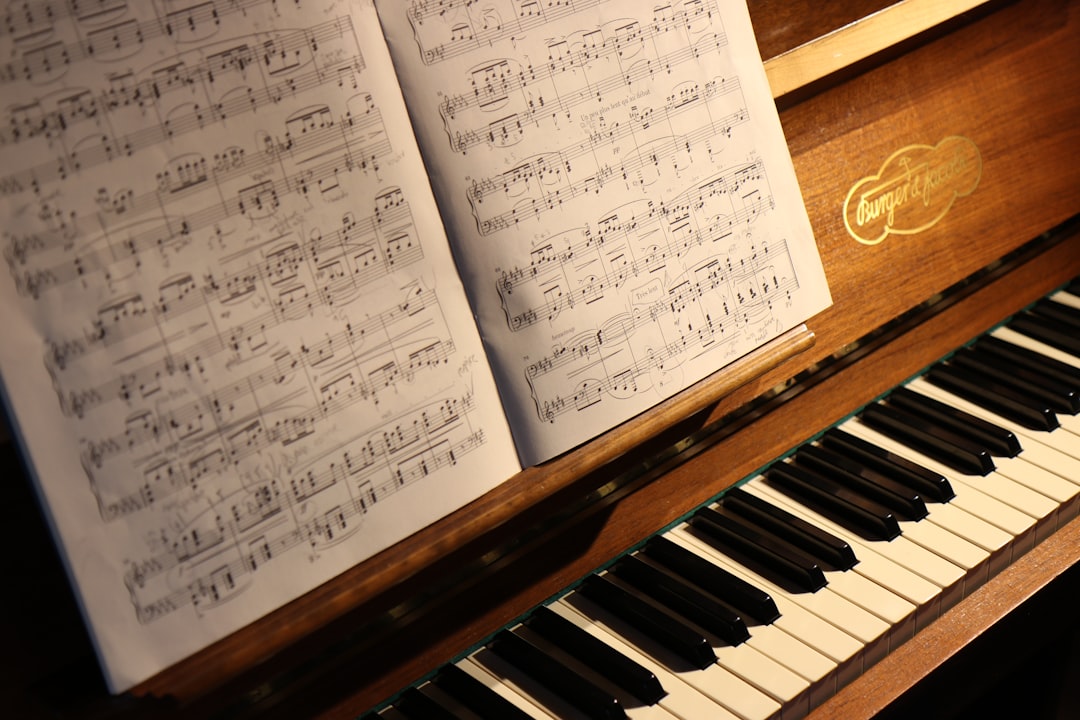Are Piano Lessons Necessary?
If you're a parent, chances are that you've heard the word "piano" come up more than once as your child gets older. Maybe they've asked to take lessons, or maybe they've been begging for a piano of their own. In either case, you may be wondering if it's worth it to invest in these musical instruments—and whether piano lessons are necessary at all. Well, let me tell you: They absolutely are!

Can kids learn to play the piano by themselves?
Yes, kids can definitely learn to play the piano on their own. But it's not easy.
Many people have learned to play the piano by themselves. It is possible that you will be one of them! However, there are many challenges that make this a difficult task:
It can be hard to know what you are doing wrong if you don't have a teacher or other students around to compare yourself against (this is called "peer pressure"). You may feel like your playing is fine when it actually isn't very good at all! This can be discouraging and make you stop practicing altogether.
It can also be hard to know how to improve if someone isn't telling you what specific things need improvement in your playing, such as having good posture or making sure that your fingers move together smoothly when playing chords (which means no one else will notice).

Are there other ways you can learn how to play piano on your own?
Fortunately, there are a number of ways to learn how to play the piano on your own. If you’re interested in learning how to play piano but don’t have access to lessons or find them too expensive, here are some options for you:
Self study - This can be a great option for people who want to teach themselves how to play piano and don't mind spending a lot of time doing so. However, if this is the route you want to go down, it's important that you get started early because it takes a lot of practice and effort over many years before one becomes good at playing an instrument such as the piano.
YouTube videos - These can be helpful tools for those who do not have access or money for lessons from professional teachers. However, it's important not overestimate their usefulness since they cannot replace actual instruction from someone with real experience teaching others how they should hold their hands while playing certain pieces (elderly individuals often forget which finger goes where when trying out new songs).

Is it better for a child to start with group or private lessons?
Group lessons are generally cheaper than private ones, and they're also likely to be more convenient. If your child wants to take piano lessons, but you can't afford a teacher, group classes are the way to go.
But it's important to understand that there may be drawbacks with group classes as well. A student will have less personal attention from their teachers in this environment, so it's important for parents or guardians to make sure that their children are actually learning something from these sessions—and not just picking up bad habits!
In addition, when a child takes only one type of lesson over another (such as private instead of group), they'll likely progress faster and learn more effectively than those who switch between them regularly—so keep this in mind before making any decisions about what kind of instruction would be best for your youngster.

How long should you practice piano each day?
There are a lot of different methods for practicing piano, but the general consensus is that you should practice at least 30 minutes a day. This might be enough time for a beginner, but it's important to remember that the more advanced you become, the longer your practice sessions will need to be. If you're still learning basic scales and chords, then 30 minutes will probably be plenty for now.
If you want to keep improving as a pianist and avoid plateauing in your playing ability (which can happen even at an early age), then this amount of daily practice won't last forever. The average professional musician practices between 90-120 minutes per day—more than double what most people would recommend! It's natural that they might need more time because their skill level is higher than yours; however, there are ways around this issue if it bothers or discourages you from practicing at all.

Is there any benefit to taking piano lessons online or in person?
When it comes to learning the piano, there are two main options: in-person lessons at a local music store or online. Online lessons have become popular in recent years, but some people still question their effectiveness. Are they as good as traditional in-person piano classes?
Convenience: Online lessons are convenient for students because you can learn from home and schedule lessons whenever it works for your schedule. For parents, online lessons are typically cheaper than private ones since no transportation is involved. This is also helpful if you live far from an instructor's location or don't have access to public transportation.
Flexibility: With online instruction, students can learn at any time of day (or night) through their preferred device and at a speed that works best for them—whether that means slowing down songs until they can play them perfectly or speeding through them to get more practice time under their belts!

Do you have to be able to read music to take piano lessons?
Learning to read music is not necessary for taking piano lessons, but it's a skill that can be very useful.
Reading music is a skill that takes time to develop, and it's not essential for playing the piano. You can learn all there is to know about playing by ear, developing your own style and making up your own songs!

Piano lessons are important for children.
Piano lessons are important for children. However, the piano is not just for kids. Adults can also benefit from taking piano lessons.
It’s true that learning to play the piano can be challenging at times and you may have difficulty with some of the pieces you’re learning, but if you keep practicing on a regular basis your skills will improve over time.
Those who take piano classes learn how to read music and gain an understanding of how different chords work together to create different sounds in their compositions or songs they write themselves based on what their teacher has taught them during lessons each week. They also learn techniques such as finger placement when playing chords on a real-life keyboard instrument instead of using software programs where there are no real keys or pedals like those found inside traditional pianos made out of wood materials rather than plastic ones which don't vibrate when pressed down onto them (which makes it harder for beginners).
Because playing instruments teaches us discipline when working hard towards reaching our goals; this mindset helps us achieve success later down the road outside school too. Check out our school for some options on piano lessons in Redmond.

So, what should we make of all this? Well, I think the answer is pretty clear: piano lessons are not only helpful for your child's musical development but also a great way to spend time together as a family. And if you're wondering whether or not it's too late for your child to start taking lessons, don't worry! There are many good options available for non-beginners who want to learn how play piano today.



